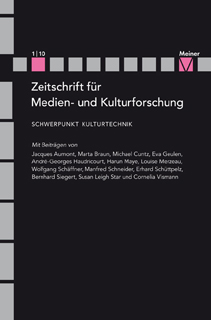Peter Romijn, Giles Scott-Smith, Joes Segal (eds.): Divided Dreamworlds? The Cultural Cold War in East and West (2012)
Filed under book | Tags: · cold war, culture, design, genetics, modernism, politics, popular music

“While the divide between capitalism and communism, embodied in the image of the Iron Curtain, seemed to be as wide and definitive as any cultural rift, Giles Scott-Smith, Joes Segal, and Peter Romijn have compiled a selection of essays on how culture contributed to the blurring of ideological boundaries between the East and the West. This important and diverse volume presents fascinating insights into the tensions, rivalries, and occasional cooperation between the two blocs, with essays that represent the cutting edge of Cold War Studies and analyze aesthetic preferences and cultural phenomena as various as interior design in East and West Germany; the Soviet stance on genetics; US cultural diplomacy during and after the Cold War; and the role of popular music as the universal cultural ambassador. An illuminating and wide-ranging survey of interrelated collective dreams from both sides of the Iron Curtain, Divided Dreamworlds? has a place on the bookshelf of any modern historian.”
Publisher Amsterdam University Press, 2012
Studies of the Netherlands Institute for War Documentation series, 5
Creative Commons BY-NC-ND 3.0 License
ISBN 9089644369, 9789089644367
248 pages
Zeitschrift für Medien- und Kulturforschung (1/2010) – Kulturtechnik [German]
Filed under journal | Tags: · cultural techniques, culture, media theory, photography, technology

Seit der Antike schließt das europäische Verständnis von Kultur die Vorstellung ein, daß Kultur technisch konstituiert ist. Schon im Wort ‘Kultur’ (lat. colere, cultura) steckt insofern ein eminent technischer Sinn, als mit cultura die Entwicklung und praktische Anwendung von Techniken zur Urbarmachung des Bodens und zur Besiedelung der Erde mit Wohnsitzen und Städten gemeint ist. Noch im 19. Jahrhundert wäre ein Konzept namens “Kulturtechnik” daher ganz selbstverständlich innerhalb der Agrar- oder Geowissenschaften angesiedelt worden.
Innerhalb der medienkulturwissenschaftlichen Diskussion, in die der Begriff heute eingerückt ist, bezeichnen “Kulturtechniken” dagegen Praktiken und Verfahren der Erzeugung von Kultur, die an der Schnittstelle von Geistes- und Technikwissenschaften ansetzen und als Bedingung der Möglichkeit von Kultur überhaupt begriffen werden. Dieses technische Verständnis von Kultur bricht mit der bildungsbürgerlichen Tradition des 19. Jahrhunderts, die unter Kultur die Sphäre der hohen Kunst, der Bildung und des guten Geschmacks verstand. Das Konzept ist nicht auf die sogenannten elementaren Kulturtechniken (Lesen, Schreiben, Rechnen) beschränkt, sondern beinhaltet auch die Techniken des Körpers, Repräsentationsverfahren und andere Medientechniken.
Mit Beiträgen von Jacques Aumont, Eva Geulen, Marta Braun, Louise Merzeau, André-Georges Haudricourt, Michael Cuntz, Erhard Schüttpelz, Harun Maye, Wolfgang Schäffner, Bernhard Siegert, Cornelia Vismann, Manfred Schneider, Susan Leigh Star.
Edited by Lorenz Engell and Bernhard Siegert
Publisher Felix Meiner, Hamburg
ISBN 9783787319510
228 pages
PDF (updated on 2014-8-31)
See also Cultural techniques at Monoskop wiki
Samir Amin: Eurocentrism: Modernity, Religion and Democracy: A Critique of Eurocentrism and Culturalism (1988-) [FR, EN, ES]
Filed under book | Tags: · capitalism, critique, culture, democracy, eurocentrism, europe, islam, marxism, metaphysics, modernity, political economy, religion, scholasticism, science, theory

Since its first publication more than twenty years ago, Eurocentrism has become a classic of radical thought. Written by one of the world’s foremost political economists, this original and provocative essay takes on one of the great “ideological deformations” of our time: Eurocentrism. Rejecting the dominant Eurocentric view of world history, which narrowly and incorrectly posits a progression from the Greek and Roman classical world to Christian feudalism and the European capitalist system, Amin presents a sweeping reinterpretation that emphasizes the crucial historical role played by the Arab Islamic world. Throughout the work, Amin addresses a broad set of concerns, ranging from the ideological nature of scholastic metaphysics to the meanings and shortcomings of contemporary Islamic fundamentalism. This second edition contains a new introduction and concluding chapter, both of which make the author’s arguments even more compelling.
French edition
Publisher Anthropos-Economica, Paris, 1988
160 pages
English edition
Translated by Russell Moore and James Membrez
First published in 1989
Publisher Monthly Review Press, New York, 2010
ISBN 1583672079, 9781583672075
288 pages
review (Joshua Moufawad-Paul, Marx & Philosophy Review of Books)
publisher (EN)
google books (EN)
L’eurocentrisme: Critique d’une ideologie (French, 1988)
Eurocentrism: Modernity, Religion and Democracy: A Critique of Eurocentrism and Culturalism, alt link (English, trans. Russell Moore and James Membrez, 2nd edition, 1989/2010)
El eurocentrismo: Crítica de una ideología (Spanish, trans. Rosa Cuminsky de Cendrero, 1989)

